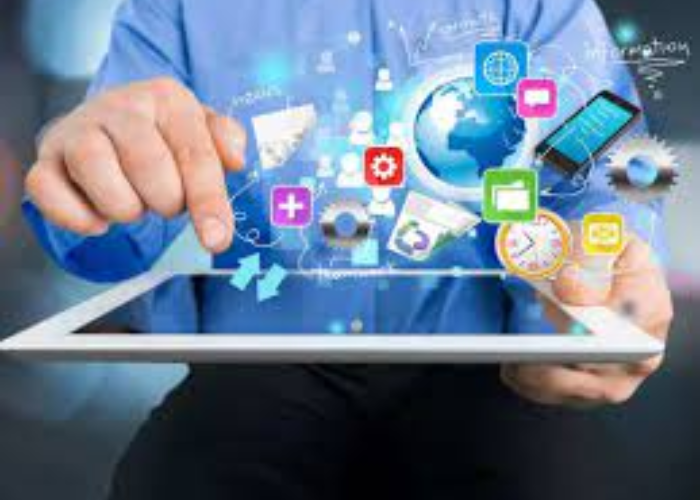In the annals of history, certain epochs stand out for their transformative impact on human society. The Industrial Revolution of the 18th and 19th centuries, for instance, dramatically altered economies, cultures, and lifestyles. Similarly, the Digital Revolution, which has been unfolding over the past few decades, has ushered in a new era of unparalleled technological evolution, reshaping every facet of human existence. This article delves into the various dimensions of the Digital Revolution, exploring its origins, key drivers, societal implications, and the future it promises.
The Genesis of the Digital Revolution: From Abaci to Algorithms
The seeds of the Digital Revolution were sown long before the term itself gained prominence. Human beings have sought ways to simplify complex calculations and automate processes for centuries. From the abacus to mechanical calculators, each innovation laid the foundation for the grand leap that would eventually come.
The turning point came with the invention of the electronic computer in the mid-20th century. Pioneers like Alan Turing and John von Neumann conceptualized the principles of computation and programmability, paving the way for the first digital computers. These machines, though enormous and rudimentary by today’s standards, marked the birth of the digital age. The 1940s and 1950s witnessed the creation of computers like ENIAC and UNIVAC, which laid the groundwork for the technological advancements to come.
Drivers of the Digital Revolution: Connectivity, Computing, and Creativity
Several key drivers converged to propel the Digital Revolution forward. At the core was the exponential growth in computing power, driven by Moore’s Law. This observation, made by Gordon Moore in 1965, predicted that the number of transistors on integrated circuits would double approximately every two years, leading to a remarkable increase in processing power and efficiency. This exponential growth enabled the development of smaller, more powerful, and more affordable computers.
Furthermore, the expansion of global connectivity through the internet was another pivotal driver. The internet transformed from a military communication tool to a vast network that linked people, information, and devices across the globe. The World Wide Web, introduced by Tim Berners-Lee in 1989, revolutionized information dissemination and opened up new avenues for communication and collaboration.
The Digital Revolution was also fueled by the creativity of entrepreneurs, innovators, and programmers who harnessed the power of computing to create groundbreaking applications and solutions. The rise of personal computing, software development, and mobile technology marked a democratization of innovation, allowing individuals and small teams to make significant contributions to the technological landscape.
Societal Transformations: The Impact of the Digital Revolution
The Digital Revolution has brought about profound societal transformations, touching virtually every aspect of human life.
- Communication and Information: The way we communicate and access information has been revolutionized. Social media platforms enable real-time interactions on a global scale, while online news sources provide instant updates. However, this also poses challenges like the spread of misinformation and invasion of privacy.
- Economy and Work: The digital economy has led to the rise of e-commerce, remote work, and the gig economy. Traditional business models have been disrupted, with companies like Amazon, Uber, and Airbnb redefining industries. Automation and artificial intelligence (AI) are transforming industries by streamlining processes and augmenting human capabilities.
- Education and Learning: The Digital Revolution has redefined education. Online learning platforms offer access to a wealth of knowledge, transcending geographical boundaries. Educational institutions are integrating technology into classrooms, fostering interactive and personalized learning experiences.
- Healthcare and Medicine: Digital advancements have revolutionized healthcare. Electronic health records, telemedicine, and wearable devices enable remote monitoring and quicker diagnoses. AI-driven algorithms assist in disease prediction and drug discovery, promising to revolutionize medical research.
- Entertainment and Creativity: The entertainment industry has been reshaped by digital technology. Streaming platforms deliver content directly to consumers, disrupting traditional broadcasting. Digital art, virtual reality, and augmented reality open up new realms of creativity and storytelling.
- Social Dynamics: The Digital Revolution has altered social dynamics, enabling global activism and social movements. Online platforms provide a space for marginalized voices to be heard and for collective action to be organized.
Challenges and Considerations
While the Digital Revolution has brought about remarkable advancements, it has also introduced complex challenges that demand attention:
- Digital Divide: The digital divide refers to the gap between those who have access to technology and those who do not. This divide exacerbates existing inequalities, hindering individuals and communities from fully participating in the benefits of the digital age.
- Privacy and Security: The proliferation of data and digital interactions raises concerns about privacy and security. Cyberattacks, data breaches, and surveillance threaten individual privacy and national security.
- Job Displacement: Automation and AI have the potential to replace certain jobs, leading to concerns about unemployment and the need for upskilling and reskilling the workforce.
- Ethical Dilemmas: As technology advances, ethical questions arise. AI and automation raise questions about decision-making, accountability, and bias. The development of autonomous vehicles and AI-driven healthcare decisions, for instance, requires careful consideration of ethical implications.
The Future Unveiled: Towards a Digital Tomorrow
As we stand at the precipice of an increasingly digital world, the question that beckons is: what lies ahead?
- Artificial Intelligence: AI is poised to reshape industries by optimizing processes, enhancing decision-making, and enabling new capabilities. The integration of AI in healthcare, finance, manufacturing, and more promises transformative outcomes.
- 5G and Beyond: The rollout of 5G networks will catalyze the Internet of Things (IoT) by enabling seamless connectivity for a vast array of devices. This will lead to innovations in smart cities, autonomous vehicles, and more.
- Blockchain and Decentralization: Blockchain technology has the potential to disrupt industries by providing secure, transparent, and decentralized solutions. It is already being explored in areas like supply chain management, finance, and digital identity.
- Climate and Sustainability: Digital technology can contribute to addressing global challenges like climate change. Innovations in energy efficiency, data analytics, and environmental monitoring can support sustainability efforts.
- Bio-Digital Convergence: The convergence of biology and digital technology could yield breakthroughs in areas like personalized medicine, biotechnology, and human augmentation.
In Conclusion: Embracing the Technological Odyssey
The Digital Revolution is an unfolding odyssey that has reshaped the world in profound ways. It has redefined the way we interact, work, learn, and create. However, as we navigate this ever-evolving landscape, it is crucial to approach it with a blend of enthusiasm and caution. Balancing the immense potential with ethical considerations, addressing challenges, and ensuring equitable access to its benefits will determine the course this revolution takes. The power to shape the future lies in our ability to harness the technological evolution while staying true to the values that define us as a society.




